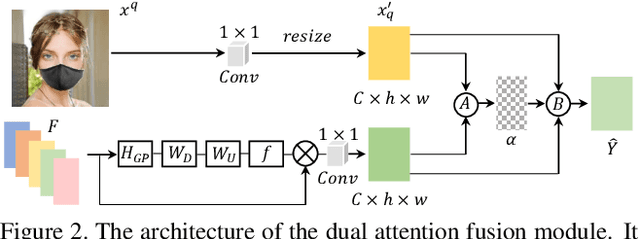Contrastive Attention Network with Dense Field Estimation for Face Completion
Paper and Code
Dec 20, 2021



Most modern face completion approaches adopt an autoencoder or its variants to restore missing regions in face images. Encoders are often utilized to learn powerful representations that play an important role in meeting the challenges of sophisticated learning tasks. Specifically, various kinds of masks are often presented in face images in the wild, forming complex patterns, especially in this hard period of COVID-19. It's difficult for encoders to capture such powerful representations under this complex situation. To address this challenge, we propose a self-supervised Siamese inference network to improve the generalization and robustness of encoders. It can encode contextual semantics from full-resolution images and obtain more discriminative representations. To deal with geometric variations of face images, a dense correspondence field is integrated into the network. We further propose a multi-scale decoder with a novel dual attention fusion module (DAF), which can combine the restored and known regions in an adaptive manner. This multi-scale architecture is beneficial for the decoder to utilize discriminative representations learned from encoders into images. Extensive experiments clearly demonstrate that the proposed approach not only achieves more appealing results compared with state-of-the-art methods but also improves the performance of masked face recognition dramatically.
 Add to Chrome
Add to Chrome Add to Firefox
Add to Firefox Add to Edge
Add to Edge